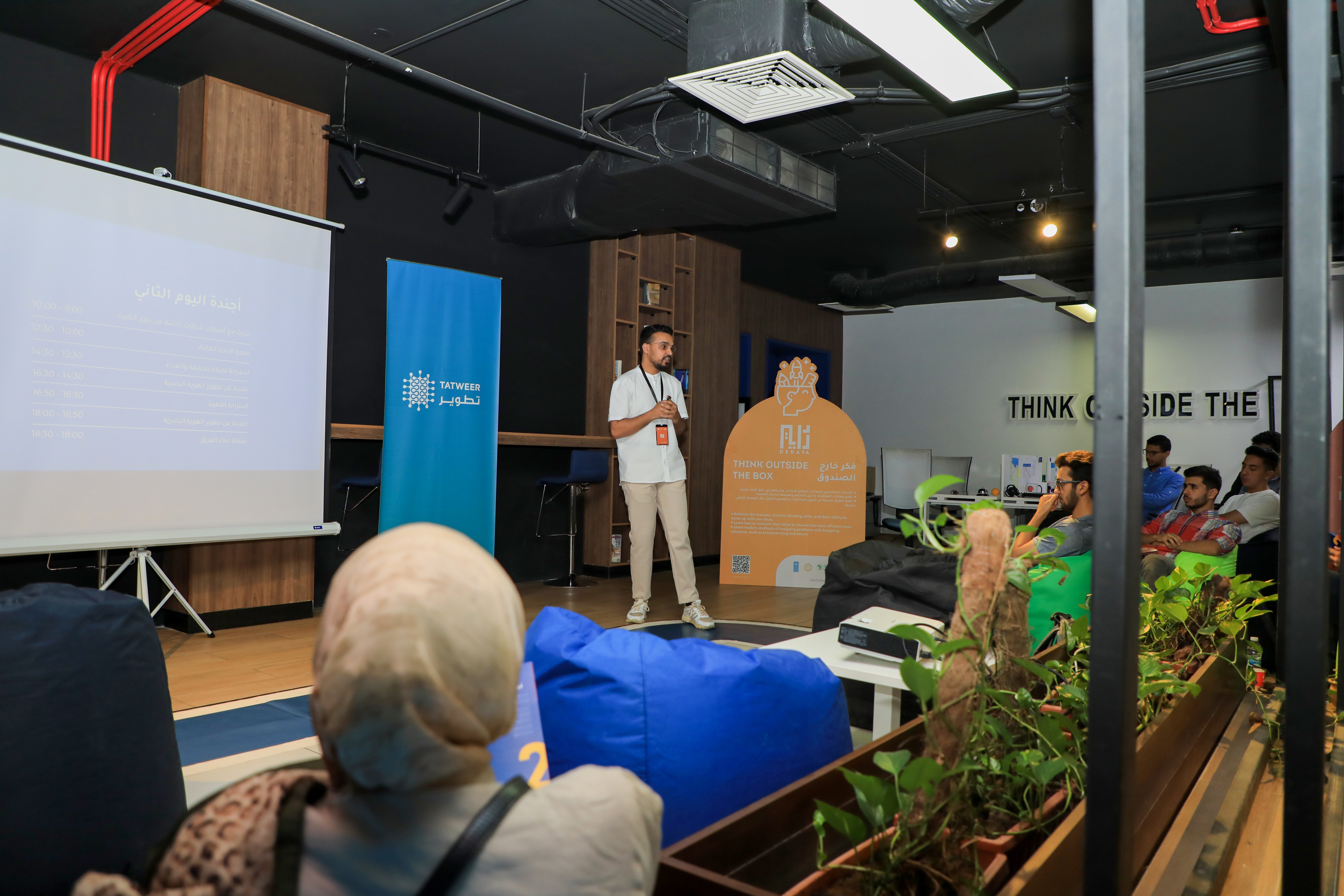Entrepreneurship is considered one of the driving forces of economic development and innovation in Libya. It provides opportunities for ambitious youth to achieve their dreams and turn their creative ideas into successful ventures. With the evolving entrepreneurial environment in the country, many entrepreneurs strive for change and development.
In this context, an online webinar was organized under the title: "First Steps to Transforming Ideas into Entrepreneurial Projects" as part of the "Deraya" initiative for entrepreneurship. This program was launched under the supervision of the Ministry of Local Government and the United Nations Development Programme in Libya. The webinar hosted several entrepreneurs and experts in the field of entrepreneurship, including Ammar Hameed, a business pioneer and CEO of Presto Delivery Company, Mohammed Abu Sharakh, a Palestinian entrepreneur based in Tunisia who has worked with several startups, and finally, Ahmed Kareem, an expert in business management and founder of several startups. They shared their rich experiences in the world of entrepreneurship, and we will gradually cover the main points discussed during this webinar.
Challenges and Mistakes to Avoid
When embarking on the entrepreneurial journey in Libya, there are potential challenges to face and mistakes to avoid. One challenge is the availability of a conducive business environment, including supportive legislation, policies, and good infrastructure. Possible mistakes include the lack of proper market research and understanding of potential customers' needs and competition analysis. Additionally, common mistakes may involve weak planning, poor resource management, lack of innovation, and failure to adapt to market changes.
Startups: Driving Change and Innovation Why do people turn to start their own businesses?
It stems from several factors that push individuals towards change and innovation. One of them is the desire for financial independence and personal freedom. Instead of relying on traditional jobs, they seek to build their own projects and fulfil their dreams. Technological advancements also play a significant role in driving people towards innovation. New technologies and communications and social media developments have provided new opportunities to develop ideas and turn them into valuable products and services.
The Importance of Flexibility for Startups and Entrepreneurs:
Flexibility is one of the key traits that startups and entrepreneurs must possess. Entrepreneurs need to adapt to rapid market changes and meet customer needs effectively, as emphasized by Ammar Hameed through the example of "WalMart," which is one of the largest companies globally but failed to enter the e-commerce market due to its lack of flexibility, unlike startups. Entrepreneurs must be capable of changing their strategies and adjusting their courses based on current information and analysis. The ability to adapt and innovate can help startups stay competitive and achieve sustainable growth.
Effective Startup Strategies and Waste-Free Operations:
Startups aim to succeed through effective strategies and efficient waste-free operations. The strategy should include a clear vision, specific goals, and an executable action plan. There should be a focus on achieving competitive advantage and effectively meeting customer needs. As for waste-free operations, processes should be organized efficiently, and overhead costs minimized.
Starting a Startup without a Clear Idea:
If you want to start a startup but don't have a clear idea, don't worry. You can begin by researching and identifying available opportunities in the market. Study various industries to discover gaps and unmet needs. You can also connect with experts and successful entrepreneurs to seek advice and inspiration. During this process, you may come up with an innovative idea that can become the foundation of a successful project.
Key Skills for Entrepreneurs
Successful entrepreneurs require a diverse set of skills to achieve success in their entrepreneurial journey. Some of these skills include:
- Creative thinking and the ability to generate new ideas and innovations
- Planning, organization, and effective time management
- Strong communication skills and the ability to build good relationships with customers and partners
- Analytical and strategic thinking for making sound decisions
- Ability to deal with risks and a high tolerance for pressure
- Innovation and adaptability to market and technological changes
- Flexibility and the ability to engage in self-learning and self-improvement
In conclusion, entrepreneurship in Libya requires passion, determination, and the ability to transform ideas into successful projects. Entrepreneurs must face challenges with confidence and be ready to learn and evolve. By leveraging the available entrepreneurial environment and applying the appropriate skills, Libyan entrepreneurs can achieve sustainable success and contribute to local economic development and societal improvement.
This is the goal of the "Deraya" initiative for entrepreneurship through a series of workshops and online webinars.
Watch the full recording of the webinar in Arabic
OTHER WEBINARS AND CASE STUDIES
At the beginning, we must understand that...
The Moomken Organisation hosted Hind Al-Bashari,...






